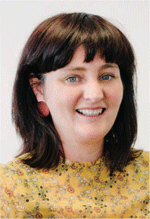Competency framework: environmental approval specialists
Petrina Raitt A B and Stacey Fidgeon A BA Green Light Environmental, 19/210 Queen Victoria St, North Fremantle, WA 6149, Australia.
B Corresponding authors: Email: petrina@greenlightenvironmental.com.au; stacey@greenlightenvironmental.com.au
The APPEA Journal 59(2) 698-704 https://doi.org/10.1071/AJ18172
Accepted: 24 March 2019 Published: 17 June 2019
Abstract
Environmental approvals take time, and scheduling and planning for their preparation and submission should be high on the list of priorities when planning a project. Understanding the regulatory process and knowing what level of information is required at each stage is critical. Providing quality environmental support to the oil and gas industry requires not only an understanding of the range of petroleum activities and their potential impacts and risks, but extensive knowledge of environmental receptors in each operational area, an understanding of complex technical methods for impact and risk quantification and a solid understanding of relevant regulations with an ability to navigate complex approval processes.
A common environmental competency framework could support the industry to:
• identify gaps in skills and knowledge for individuals, teams or across industry sectors
• develop people across the broad range of skills they require
• recruit the right people into the right positions for more effective teams
• engage environmental professionals to encourage longevity in their careers
• develop learning and development solutions including mentoring and coaching opportunities that will have increased relevance to the industry.
Green Light Environmental have developed an internal environmental competency framework as a means of assessing and documenting competency for staff and contractors working under the Green Light Environmental brand. The framework consists of a series of competency standards that reflect the core responsibilities for environmental consultant resources during planning, construction, operation and decommissioning of petroleum activities. Each standard clearly identifies the knowledge and experience required to achieve competence and is supported by assessment tools. The adoption of a shared competency framework would further support the shared desire across industry, regulator and stakeholders to increase collaboration and transparency in environmental approval processes and documentation.
Keywords: environmental impact assessment, environmental competency, competency standards.

Petrina Raitt is the Director of Green Light Environmental, a specialised environmental consultancy which provides environmental support and value adding solutions to the oil and gas industry. Petrina has over 20 years of professional experience in environmental roles within government agencies, oil and gas and mining industries in Australia. Her experience has included managing large scale and complex impact assessments of both offshore and onshore activities, and obtaining approvals of significant projects with both technical and stakeholder challenges. Petrina is also founder and Managing Director of eBase, a cloud-based environmental impact assessment platform which aims to support more efficient consistent and thorough EIA and project approvals. |

Stacey is the Operations Manager at Green Light Environmental, a specialised environmental consultancy which provides environmental support and value adding solutions to the oil and gas industry. Stacey brings a unique and varied skill set to Green Light Environmental which includes a strong background in Organisational Development, working with business to develop capacity through people development, process improvement and system implementation. Stacey has an extensive background in managing and implementing IT solutions spanning a career of 20 years. Stacey bridges the gap between IT and business, to ensure that IT enables collaboration and transparency to support smarter ways of working; disrupting the norm to turn everyday data into a strategic asset. |
References
AS/NZS ISO 31000:2009 Risk management – Principles and guidelines.AS/NZS ISO 14001:2004 Environmental management systems – Requirements with guidance for use.
AS/NZS ISO 14031:2000 Environmental management – Environmental Performance Evaluation – Guidelines.


